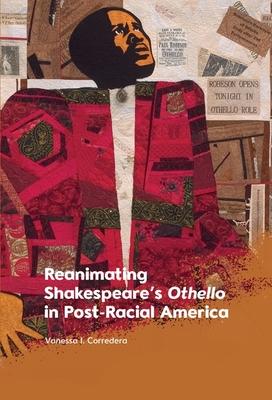Othello famously supplicates, 'Speak of me as I am', pleading for the Venetians to 'nothing extenuate', leave out, or make thin (5.2.352). Othello's anxiety about narrative accuracy exposes his fear over his story's potential misrepresentation. As the first monograph to examine Othello's history of contemporary reanimations, Reanimating Shakespeare's Othello in Post-Racial America takes up this question of retelling Othello's story, turning to the play as re-crafted in a time and place imagined as having overcome racial injustice: post-racial America (2008-2016). This book analyses representations of Othello across genres and media including podcasts, television, film, graphic novels and performance, and argues that these representational choices of Othellos perpetuate varying racial frameworks that advance antiblack or antiracist versions of the play. By elucidating the presence and function of these competing frameworks, it illuminates and explains how to wrestle with the intersections between Shakespeare, Othello and the American racial imaginary in appropriations, scholarship, the classroom and beyond.

Reanimating Shakespeare's Othello in Post-Racial America
Othello famously supplicates, 'Speak of me as I am', pleading for the Venetians to 'nothing extenuate', leave out, or make thin (5.2.352). Othello's anxiety about narrative accuracy exposes his fear over his story's potential misrepresentation. As the first monograph to examine Othello's history of contemporary reanimations, Reanimating Shakespeare's Othello in Post-Racial America takes up this question of retelling Othello's story, turning to the play as re-crafted in a time and place imagined as having overcome racial injustice: post-racial America (2008-2016). This book analyses representations of Othello across genres and media including podcasts, television, film, graphic novels and performance, and argues that these representational choices of Othellos perpetuate varying racial frameworks that advance antiblack or antiracist versions of the play. By elucidating the presence and function of these competing frameworks, it illuminates and explains how to wrestle with the intersections between Shakespeare, Othello and the American racial imaginary in appropriations, scholarship, the classroom and beyond.